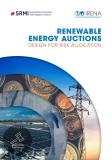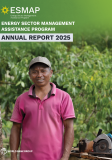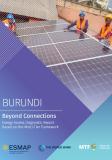Publications
This report provides a brief overview of the role of energy storage against the background of current trends in power systems with an emphasis on developing countries.
It introduces the different ways in which storage can help meet policy objectives and overcome technical challenges in the power sector, it provides guidance on how to determine the value of storage solutions from a system perspective, and discusses relevant aspects of policy, market and regulatory frameworks to facilitate storage deployment.
The document is intended to highlight relevant issues, provide guidance to policymakers and regulators in this relatively new area and identify additional analytical requirements.
This report was prepared by the Energy Storage Partnership (ESP). The ESP aims to accelerate the availability and deployment of energy storage solutions tailored to the needs of power grids in developing countries.
Energy Sector Management Assistance Program. 2020. Deploying Storage for Power Systems in Developing Countries: Policy and Regulatory Considerations. World Bank, Washington, DC. © World Bank. License: CC BY 3.0 IGO. https://openknowledge.worldbank.org/handle/10986/34400



